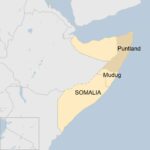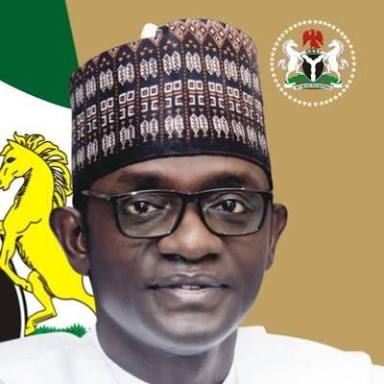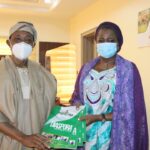UN Decries Continued Existence of Violent Extremism in Lake Chad Region
United Nations has decried that despite efforts made to address violent extremism and root causes of conflicts in the Lake Chad region, the problem has continued to persist, blocking progress in the region.
Salah Khaled, the Director of United Nations Educational, Scientific and Cultural Organisation (UNESCO) Regional Office for Central Africa, lamented that the consequences of these violent extremism largely perpetrated by the Boko Haram terrorist, are alarming with over nearly two and half million people displaced, ecosystems degraded and livelihood of communities threatened.
He said this on Thursday in Abuja at a High-Level Launch event of the Civil Society Organisation (CSO) Network for Inclusive Rehabilitation and Reintegration, Lake Chad Basin Chapter co-hosted by Neem Foundation and the Elman Peace Centre as a leading African peacebuilding organisation with the support of the United Nations Development Programme (UNDP).
Khaled noted that the Lake Chad Basin region is the front line in the fight against climate change, insecurity and poverty, insisting that collaboration between governments and Civil Society Organizations (CSOs) is key in addressing the problems.
He said: “Through our joint efforts we have the potential to be a laboratory of ideas and chain of hope to address these problems.
“The UN 2030 agenda is a call for collaborative efforts to eradicate poverty, combat climate change and promote peace.”
On the reintegration of Boko Haram ex-combatants to the society, Khaled pointed out that it is crucial to move from the classic standard and basic training sessions to bring technical vocational training; to give people a new alternative to immunise them from the manipulations of the Violent Extremists.
Mohamed Yahya, UNDP Resident Representative in Nigeria, on his part, said that though some parts of Lake Chad has been liberated from Boko Haram, the terrorist group remains active in the region and there is still much more to be done.
He noted that there is a direct relationship between marginalisation, poverty and why people join violent extremism, and these need to be addressed to find lasting solution to the crisis, stressing that a collaborative effort is needed to tackle these root causes.
He said: “Boko Haram do not control as much territories as they used to, things have improved, but we are not where we want to be.
“In my conversations with the military, they can only do so much in terms of fighting violent extremism, and the solution to violent extremism is some of the work that CSOs and governments have to do.”
He however noted that it was possible to carry out re-integration and rehabilitation why conflicts are ongoing.
Yahya said any re-integration and rehabilitation should engage root causes, such as the lack of opportunity and livelihood.
He said: “We need to do reintegration differently. We have to think theoretically to finding solutions and it’s in the hands of CSOs.”
Maryam Uwais, Special Adviser to President Muhammadu Buhari on Social Investments, also speaking at the event, said the presidency acknowledges the role of CSOs to building resilient and social responses to insecurity; to provide alternatives to perpetrators and potential perpetrators of violence in the Lake Chad Basin; and strengthen protection systems.
She however expressed the readiness of the presidency to work with CSOs in achieving these goals, noting that
CSOs are key to understanding the communities and gather early warning signals relevant to countering violent extremism.
The Executive Director of Neem Foundation, Dr. Fatima Akilu, in her welcome remark explained the essence of the event while Ilwad Elman, Chief Operating Officer, Elman Peace Centre, and Mustapha Alhassan, Programme Manager of Neem Foundation, provided more details.
The launch brought together over 30 participants selected on the basis of knowledge and experience in supporting reintegration through their work in governments, international organisations, civil society and private sector to also outline the ambitions and milestones achieved to date by the LCB Inclusive CSO Network.






